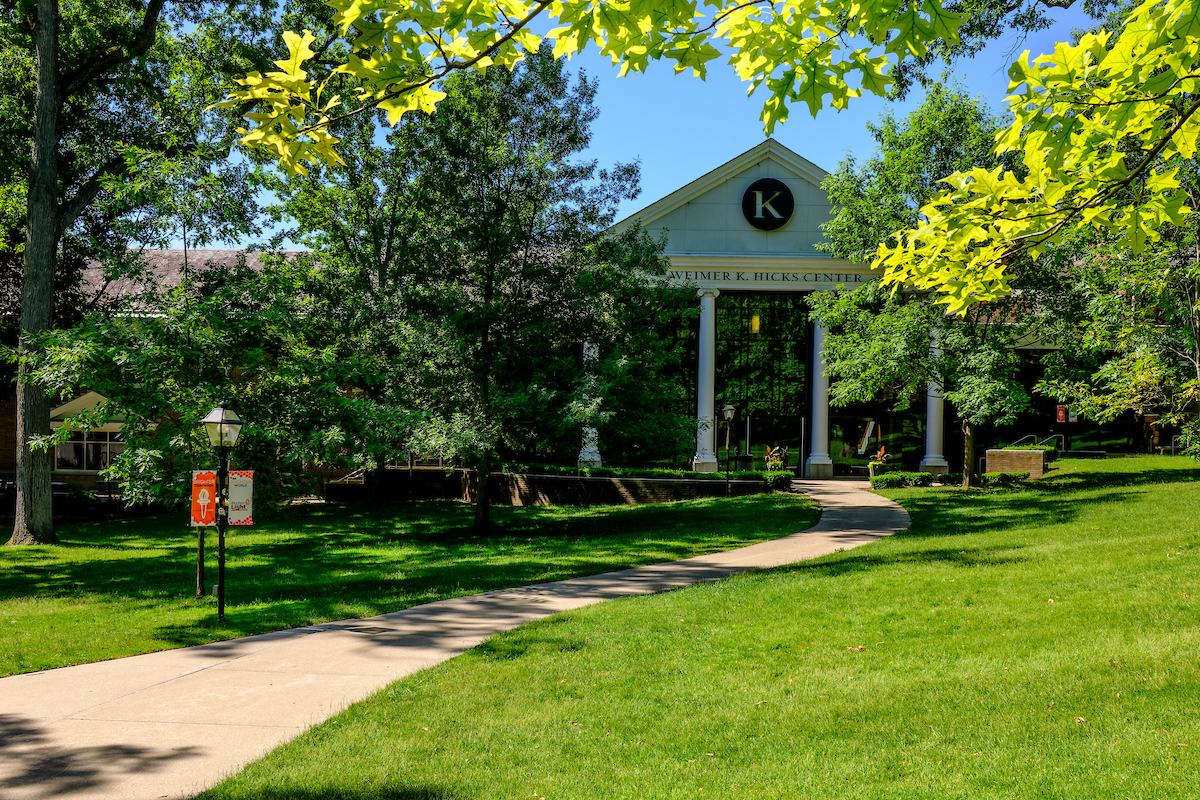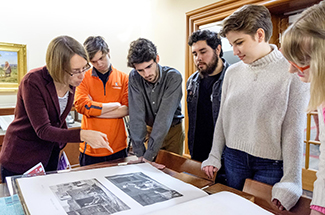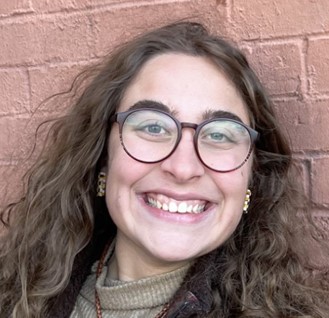
Why Study History at K?
Everything and everyone has a history. By learning how to critically examine the past, you will be able to trace personal, societal, and national development in order to shape the future.
Telling the stories of the past, you can give voice to people and experiences who may not have had the agency to do so themselves. However, studying history at K is more than just understanding what happened in the past; you will learn how to connect modern problems, situations, and institutions to the historical contexts in which they originated. By understanding the successes and failures of the past, you will be equipped to analyze and understand the present.
You will gain these skills by synthesizing and evaluating various sources and viewpoints in classes like Unsettling Colonial America; Women in Classical Antiquity; History of Science, Magic, and Belief; and Occupiers/Occupied in Post-World War II East Asia. In these courses, you will explore the diversity and similarity of the human experience across time and place by critically examining evidence and theories.
As a history alum, you will enter the world as a more informed global citizen. The skills and tools you will develop during your four years as a history student will prepare you to enter a variety of professions or continue your studies in graduate school. Past students have led successful careers in history, law, policy, foreign relations, and non-profit work.
What can you do with a history degree?
Below are some of the careers, employers, and graduate schools of our history alumni.
Careers
- Attorney/Law Clerk
- Archivist
- Professor/Teacher
- Curator
- Grant Specialist
Employers
- The Obama Foundation
- Library of Congress
- U.S. District Court
- AmeriCorps
- American Public Health Association
Graduate Schools
- University of Michigan
- Michigan State University
- Johns Hopkins University
- New York University
- University of Rochester
Program Spotlights

Take a Deep Dive into History at the Edward Moritz Lecture
Named after a late history professor who taught at the College from 1955 to 1988, the Edward Moritz Lecture is a celebration of excellence in teaching and research in history. The lecture provides you the opportunity to learn about aspects of history from the field’s leading researchers, who are invited to campus to share their scholarship. In 2020, Dr. Lewis Siegelbaum from Michigan State University spoke about national identity formation and othering in his presentation “Bumping Up Against Ukraine as a Historian of Russia.”
Showcase your knowledge with your Senior Integrated Project (SIP)
Whether you completed your Senior Integrated Project (SIP) within the History Department or not, we are proud of our seniors and want to showcase all you have learned. In that spirit, the annual History SIP Colloquium is an opportunity for all our majors to revel in their accomplishments and present their final projects in front of their classmates, professors and families. For example, Laurel Thompson ’14 conducted primary source research at the National Archives for her SIP, “Common Ground, Cooperation, and Controversy: The Partnership of SCAP and Suspected War Criminals in Occupied Japan”.

Meet the Current Departmental Student Advisor
What is the best thing about being part of this department?
The history department challenges students to think critically and form their own ideas about a historical era or topic.
What has been your favorite class at K? Why?
My favorite classes at K are History Memory and Identity in Modern Europe, and United States Recreation and Leisure. Both classes introduced me to different areas of historical study (memory studies and the history of recreation and leisure) that have informed my interest in the subject!
How have you taken advantage of the open curriculum or experienced breadth in your education?
I have explored other disciplines like critical ethnic studies, film and media studies, and philosophy that I would not have had the time to explore without the open curriculum. Plus, over our free summers, I have had the opportunity to participate in five different internships.
What experiential education opportunities have you participated in?
In my Junior year, I studied away in Philadelphia, where I interned at a historic site that will be the topic of my SIP. I also traveled to St. Louis to research through the HILL (Humanities Integrated Locational Learning) opportunity at K. Plus, I started the History Club!
What is your Senior Integrated Project (SIP)?
My SIP explores how a restoration effort in the Center Surveillance Hub building of Eastern State Penitentiary (an abandoned penitentiary turned historic site/museum) would impact visitor interpretation of the site’s history and contemporary issues like mass incarceration.
What are your career aspirations/next steps after K?
After graduating, I plan to work at a local historical society museum, in archives, or as a historic preservationist. These jobs might require a master’s degree, but we will cross that bridge when we get to it.


